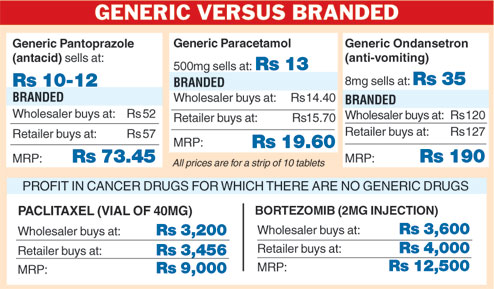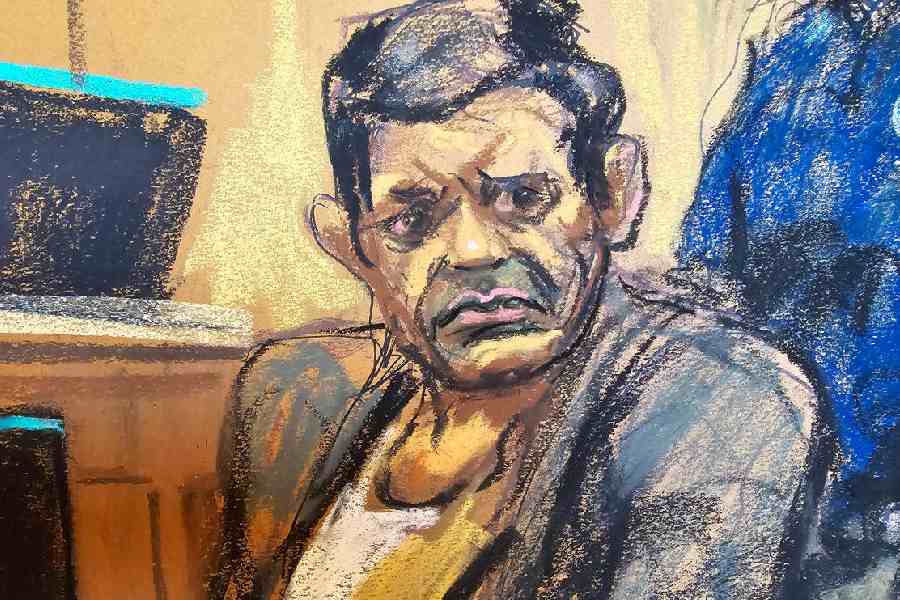 |
A Howrah pharmacy owner who has long braved threats from the retail lobby to offer huge discounts on expensive medicines showed again on Monday that he dares to be different in a state where herd mentality is the norm.
Shekhar Nath’s Sister Medical Stores, located on Natabar Pal Road in Kadamtala, was among the majority of pharmacies forced shut across the state by the Bengal Chemists and Druggists Association to protest the availability of medicines at “fair prices” in some government hospitals.
But nobody could prevent the 56-year-old from standing outside his drugstore and accept prescriptions so that nobody who needed medicines on a strike day returned empty-handed.“ I was outside the shop from 10am till noon and then 5 till 8pm. I would enter my shop from the backdoor to fetch the required medicines,” Nath recounted to Metro the day after.
 |
| Shekhar Nath at his store on Tuesday. (Gopal Senapati) |
He has, of course, been putting service before self and principles over union politics long before the government had conceived the idea of introducing fair-price drugstores in hospitals.
Nath decided to reduce his margin of profit so that needy customers could afford expensive drugs. In doing so, he has incurred the wrath of the druggists’ association and was banned three months ago. The ban was ostensibly lifted on Monday just so that he would comply with the association’s call for a strike!
Kartik Pal, the secretary of the druggist association’s zonal committee, contested the allegation that Nath had been targeted for offering discounts.
But regular customers vouch for his selflessness. “He has been selling drugs at a discount since 1983, when Sister Medical Stores opened. Everyone knows about this pharmacy,” said a neighbour in Kadamtala.
Cancer patient Ruby Banerjee is one of the beneficiaries of Nath’s benevolence. She got a vial of the chemotherapy drug Mitotax at a little above Rs 5,000 against the MRP of Rs 9,668.
If available, a particular dialysis drug priced at Rs 8,092 for a pack of three can be bought at Nath’s pharmacy for Rs 3,600. He doesn’t stock all expensive drugs but gets them from his “distributor friends” whenever someone in need approaches him.
“One distributor offered me the cancer drug for Rs 1,500 less, someone else said Rs 1,800 and another one gave a rebate of Rs 2,500. Then I found someone who said he would cut the price by Rs 4,500,” Nath recalled.
He procured the medicine for the patient, keeping a margin of only Rs 100 “to cover the travel cost”.
The quantum of discounts that Nath offers on some drugs without incurring a loss shows how much profit retailers make on those very medicines. Pharmacies make huge profits even on medicines priced much less than the chemotherapy or dialysis drug, which is why they fear the advent of fair-price drugstores in government hospitals.
Nath is aware of fair-price shops selling generic medicines at one-third the price of branded equivalents and is glad the government intends setting up more of them. He said “a little fairness” in retail pricing would go a long way in benefiting everyone.
Do you know anyone like Shekhar Nath? Tell ttmetro@abpmail.com









